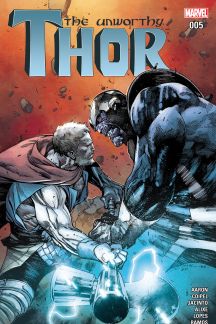
I Am Groot, Issue #1 starts off as a "Guardians of the Galaxy" comic, with the whole gang flying through space. Star Lord is in command, but when he hits the head, baby Groot, who hasn't grown up much, takes control, flying them toward a strange object in space. Just as they are trying to figure out what it is, Groot flies them through it into another dimension. They get back just in time, as the anomaly is closing, but during all the chaos, Groot took an escape pod down to the planet. The baby Groot is all by himself.
Anyway, that's the setup. Issue #2 came out on Wednesday, but I wanted to see if I liked Issue #1 enough to keep reading it. I am starting to read more comics, so if I get through all or almost all of the comics I bought this week, I'll buy Issue #2 next week. I'm kinda' intrigued by someone trying to understand the language of baby Groot. The fact that I read it at all today, with Titan, Issue #5; The Punisher, Issue #13; and Saga, Issue #44 all coming out this week is encouraging. I'm interested.









